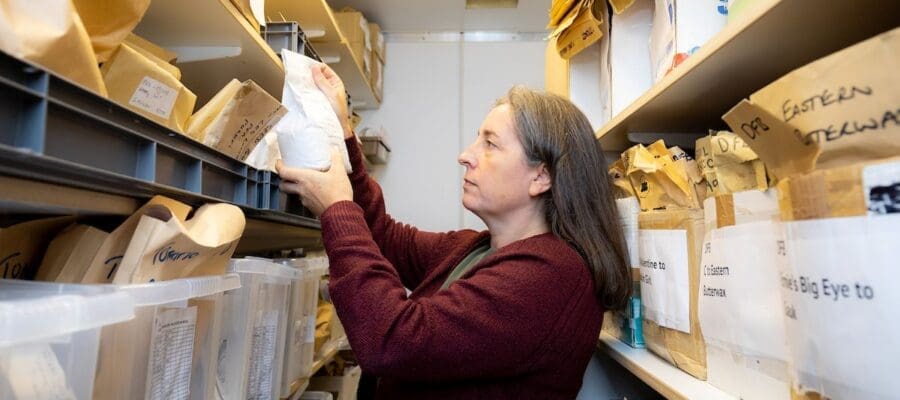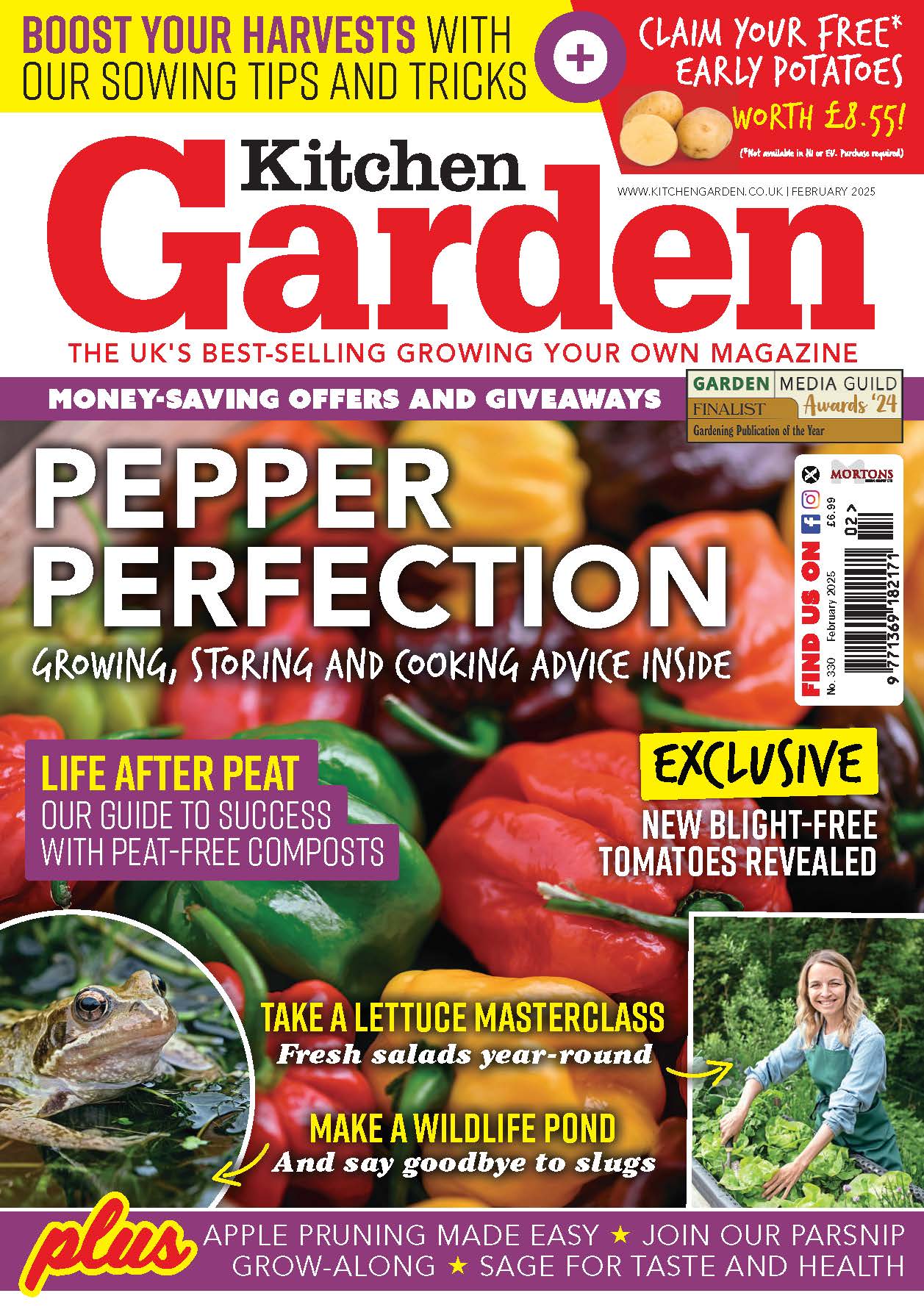All over the UK a brigade of gardeners is helping to grow and preserve historic vegetable varieties to conserve their future – and ours.
Concerned about the growth of industrial monocrops, and in the face of climate change and emerging diseases, these volunteer ‘Seed Guardians’ have been tasked with growing heritage seed varieties by Garden Organic’s Heritage Seed Library.
The Library, based at the charity’s headquarters at Ryton Gardens near Coventry, holds the National Collection of Heritage Vegetables – more than 800 varieties of seeds – including rare landrace varieties adapted to specific growing conditions, heirloom varieties saved over generations and varieties no longer available to buy.
From the North Coast of Scotland to the Kent countryside, 185 amateur gardeners – from all walks of life – grow heirloom beans, peas and many more notable vegetables to help protect biodiversity and the food of the future.
Marie duQuesnay has been a Seed Guardian for nine years. She lives on an exposed hill 850ft above sea level in Pembrokeshire but this hasn’t dampened her passion for seed saving.
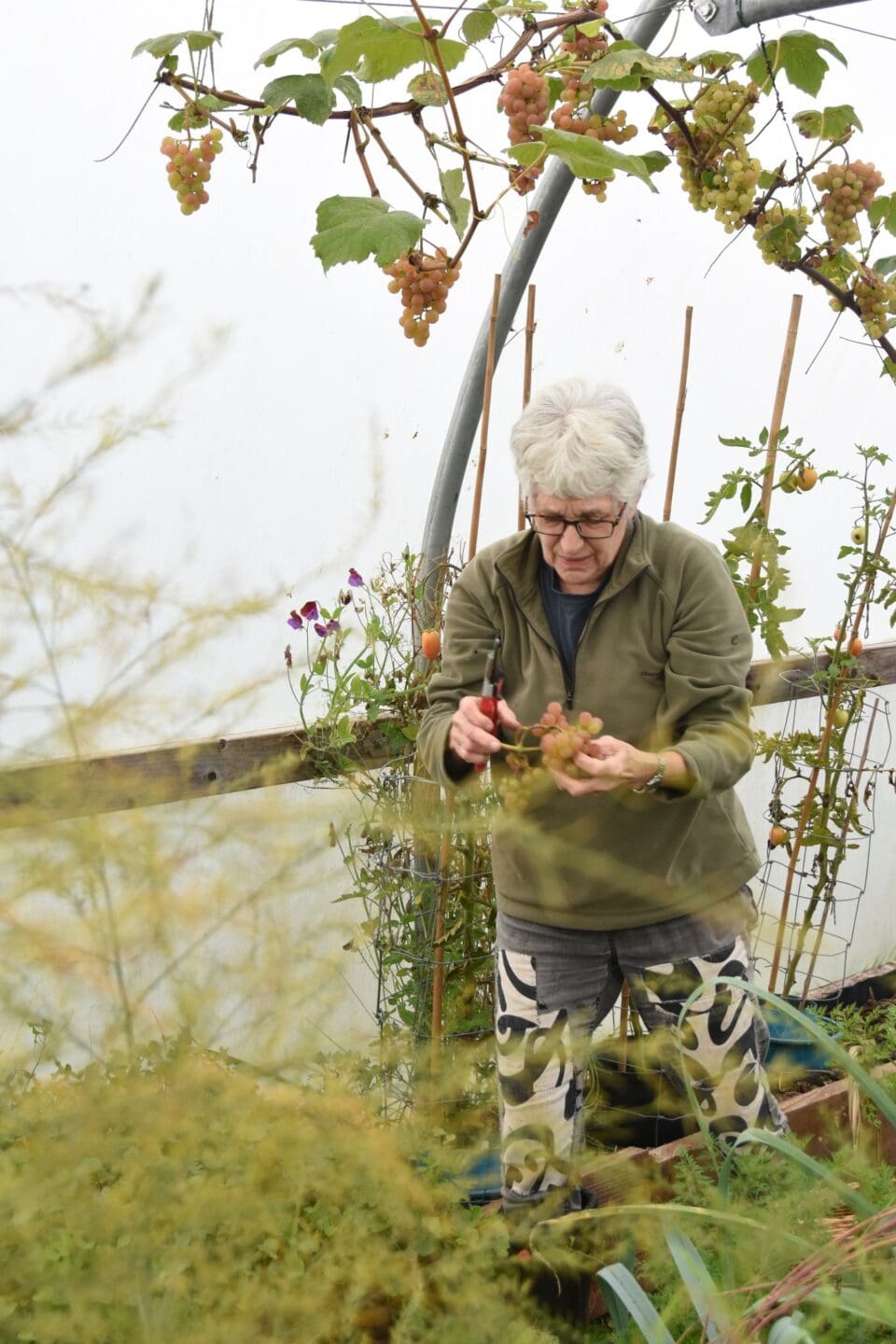
She says: “It’s been fantastic to have the opportunity to play a tiny part in such an important project as the Heritage Seed Library. It is so sad to see that the intensification of farming is narrowing the range of what’s grown and coupled with regulations (especially in the EU) around what seeds are certified for sale, we’re losing very local varieties. And once they’re gone, that’s it.”
Nadia Mazza moved to the Morecambe Bay countryside to become a more self- sufficient gardener and said “Seed growing has been a fantastic way to incorporate sustainability into my daily life – and becoming a Seed Guardian was the first step in a whole new way of living for me.”
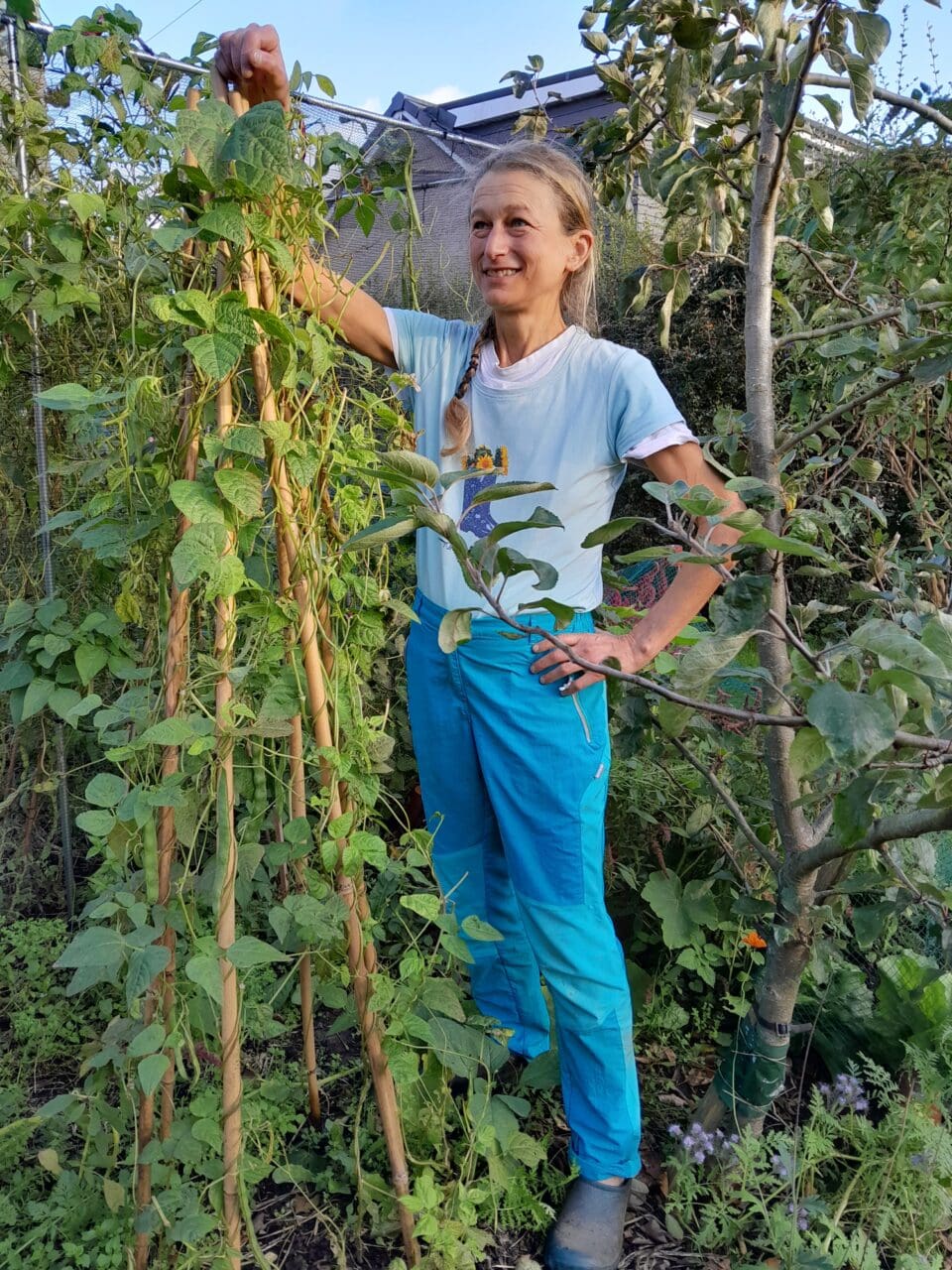
At her Overton garden, Nadia has grown a range of crops for the Heritage Seed Library – and the climbing French beans have been a real success story.
“My stripey tiger beans have been prolific, producing a huge amount of beans, which I’ll return to the Library. It’s wet here, so I must shelter the seed pods under cover before they get too damp. You have to be patient – but it’s worth it. Where can you buy tiger beans in the shops? It’s amazing I’m able to grow these beautiful beans in the wet northwest of the UK!
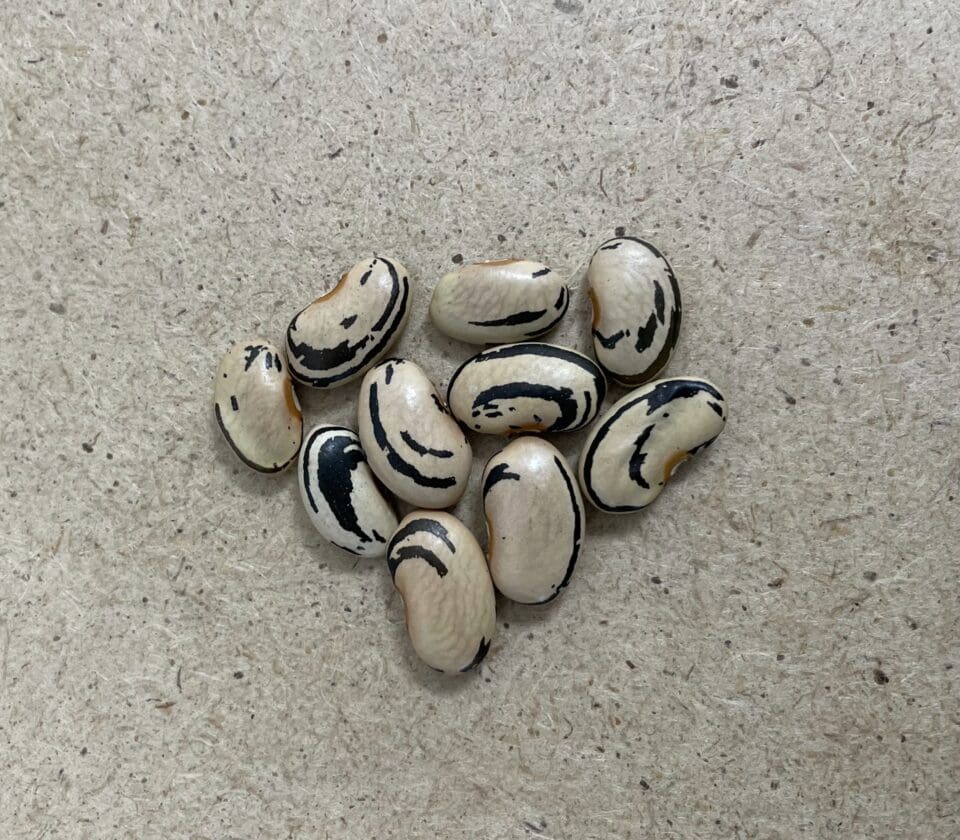
“Increasing resilience and biodiversity, and keeping old seed varieties alive, is so important. If everyone grew the same vegetable varieties year-in-year-out and they got attacked by pests or diseases, we would have serious problems.”
David Howells’ love of gardening started aged 10 and 61 years later he is nurturing seeds for the Heritage Seed Library in his Winchester garden and allotment.
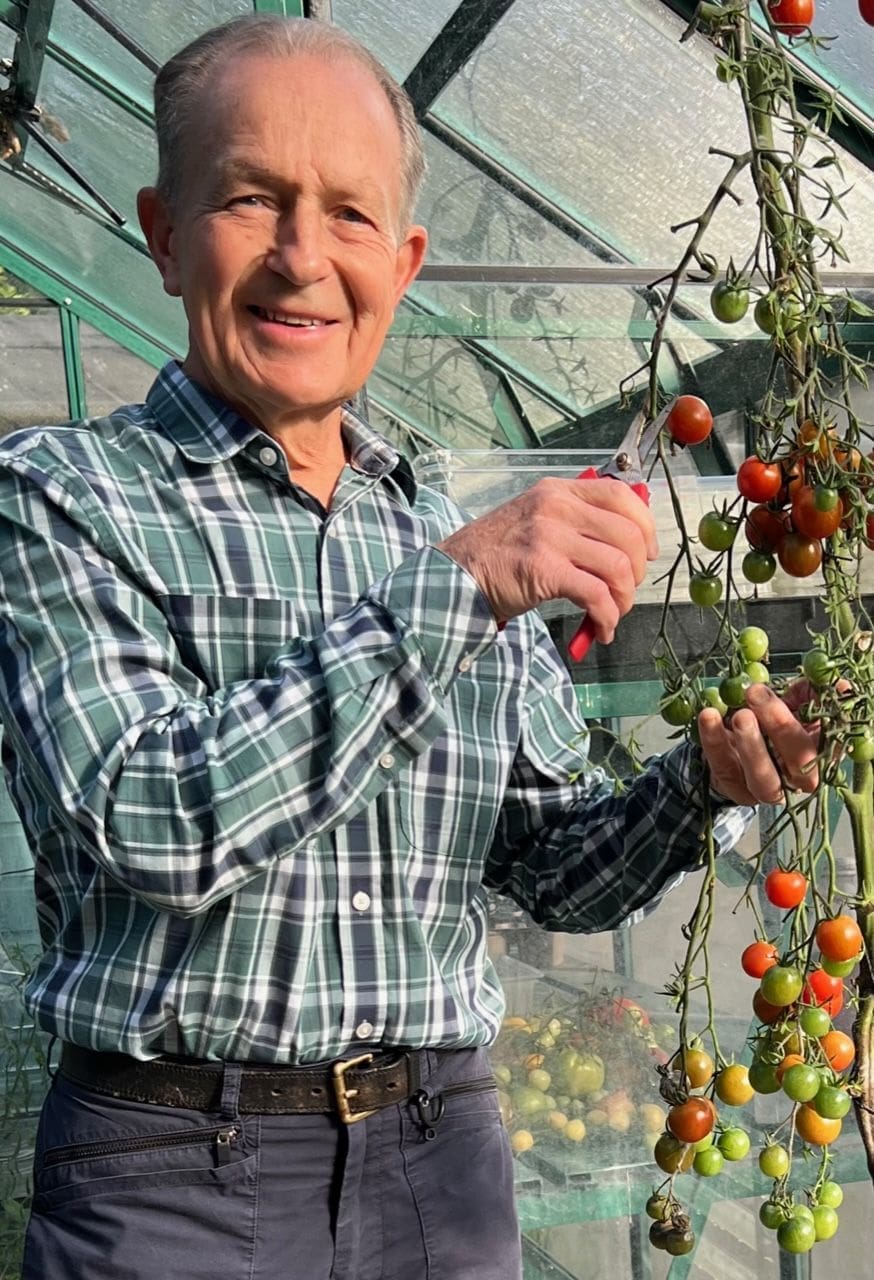
“Every time I grow a great tasting vegetable from seed, it’s so rewarding,” says David. “It’s great to play a part in helping to preserve plant varieties that might otherwise disappear from circulation and cultivation.”
Seed saviours
With the diversity of plants diminishing since the early 20th century, many of the seeds we once grew are in danger of being lost. The UN’s Food and Agriculture Organisation estimates 75 per cent of crop diversity was lost between 1900 and 2000.
The Heritage Seed Library’s Seed Guardians grow-out the plants in their gardens and allotments, collecting, cleaning and drying the seed and sending it back to the Library to be conserved. They also give feedback on important factors such as performance, pest and disease resistance and, of course, taste.
Varieties have included amaranth ‘Mrs McGhie’, ‘White Belgium’ carrot, ‘Table Talk’ pea, ‘Bob and Mary’s’ climbing French bean and ‘Mescher’ lettuce.
Catrina Fenton (Main picture – copyright Shaun Fellows / SHINE PIX LTD) Head of Garden Organic’s Heritage Seed Library says: “Up and down the country Seed Guardians are carefully carrying out conservation work with us, and we simply couldn’t do the work we do without their help. Their enthusiasm and dedication are exactly why the Heritage Seed Library has been around for almost 50 years. Today this work is more important than ever, to ensure diversity in our food systems is available for future generations and to develop better adapted plants in a changing climate.”
Each year, up to 150 varieties of the heritage seeds are chosen for inclusion in the annual Heritage Seed Library seed list. Members of the Seed Library have from the beginning of December until the end of February to choose six free packets of seeds to grow.
To find out more about the Heritage Seed Library or become a Seed Guardian go to //gardenorganic.org.uk/hsl. If you join the library before the end of February you can choose your six free packets of Heritage Seeds from this year’s list. Visit: //gardenorganic.org.uk/join.

